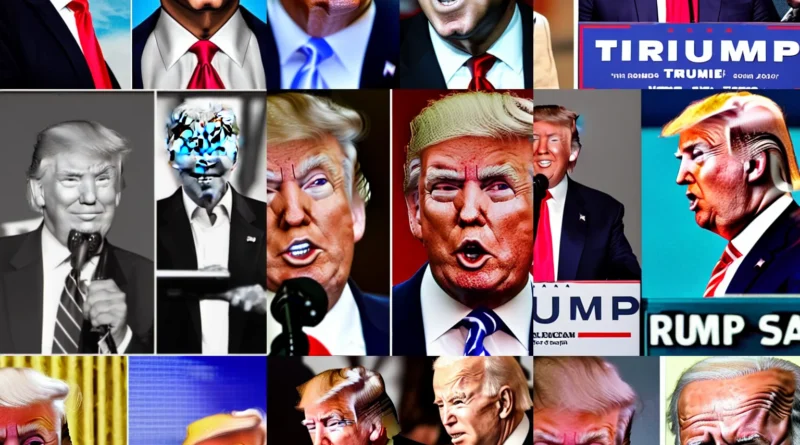Deepfakes in Politics: An Era of Disinformation
The advent of deepfakes, AI-generated or manipulated media that can convincingly portray individuals doing or saying things they never did, has introduced a profound challenge to the political landscape. This technology, while novel in its sophistication, has quickly become a double-edged sword in political discourse, capable of both enlightening and deceiving.
The Rise of Political Deepfakes
Election Interference: Deepfakes have the potential to influence elections by spreading misinformation. For instance, during the 2023 Slovak parliamentary election, a deepfake audio purportedly of opposition leader Michal Šimečka discussing election rigging and the price of beer went viral, potentially swaying voters.
Global Impact: The use of deepfakes isn’t confined to one region; there have been instances worldwide where deepfakes have been used to manipulate political narratives, from Moldova to democratic primaries in the U.S.
Applications in Political Campaigns
Voter Manipulation: Politicians or external actors might use deepfakes to discredit opponents or to promote their agendas through fabricated speeches or endorsements. A notable example includes a deepfake video of Trump criticizing the Paris climate agreement in Belgium, even if it was acknowledged as a parody.
Microtargeting: AI enables the creation of personalized deepfakes tailored to individual voter profiles, potentially amplifying their impact through social media echo chambers. This microtargeting can exploit voters’ biases or fears, making disinformation more effective.
The Threat to Democracy
Erosion of Trust: Deepfakes contribute to a broader skepticism towards all forms of media. The “liar’s dividend” concept suggests that even real footage can be discredited by claiming it’s a deepfake, undermining accountability and public trust in politicians.
Security Implications: Beyond domestic politics, deepfakes pose threats to national security by potentially causing diplomatic incidents or influencing international relations through fabricated statements or actions by world leaders.

Legislation and Regulation
Legal Responses: Various countries are attempting to legislate against the malicious use of deepfakes. In the U.S., several states have passed laws requiring disclaimers on political deepfakes, while the Federal Election Commission has considered including deepfakes in prohibitions against fraudulent misrepresentation.
International Actions: The Election Commission of India has mandated transparency in AI-generated campaign materials to combat misinformation. This trend indicates a global recognition of the need for regulation.
Countermeasures and Detection
Detection Technologies: There’s a race to develop tools that can identify deepfakes. DARPA’s initiatives in the U.S. and academic research worldwide are focused on creating software to detect these manipulations swiftly.
Public Awareness: Efforts to educate the public about deepfakes aim to build digital literacy to spot these forgeries, though this is a challenging task given the sophistication of the technology.
Ethical and Social Considerations
Ethical Use: While deepfakes can be used for entertainment or positive educational purposes, their potential for harm in politics is undeniable. Ethical considerations include consent, privacy, and the right to one’s own image and voice.
Gender Disparities: Women in politics are disproportionately targeted with deepfake pornography, adding a layer of gender-based harassment to political campaigns, Deepfakes in Politics: An Era of Disinformation ~ Deepfakes represent a significant evolution in the arsenal of political tactics, offering both opportunities for creativity and profound risks to democratic processes. As technology advances, the need for robust countermeasures, from legal frameworks to technological solutions, becomes more urgent. The political arena must navigate this new reality with vigilance to preserve the integrity of public discourse and elections. The challenge is not just technological but fundamentally about safeguarding democracy in an age where reality can be so convincingly fabricated.

